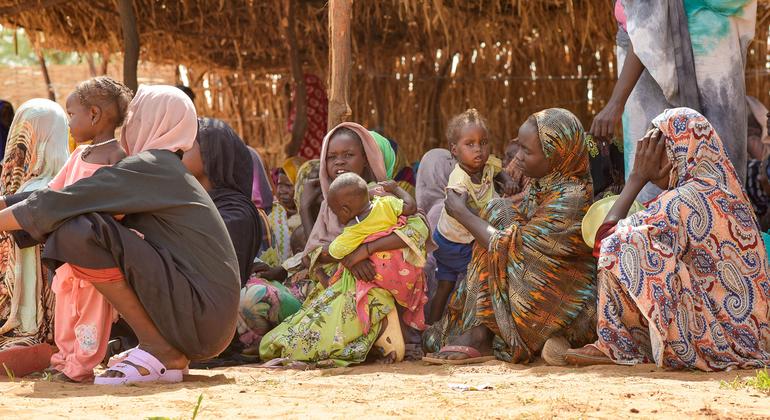Here’s the translation of the text into American English:
—
The food crisis in Sudan has reached alarming levels, according to a new UN-backed report that confirms the presence of famine in several regions of Darfur and Kordofan. These areas have suffered intense clashes and sieges, leaving communities without access to food and humanitarian assistance. More than 21 million people in the country are facing acute food insecurity, making this the largest crisis of its kind worldwide.
The report from the Food Insecurity Analysis Committee (IPC) highlights that famine conditions have been identified in areas such as El Fasher in North Darfur and Kadugli in South Kordofan. Families in these locations are surviving on leaves and grass, with approximately 375,000 people estimated to be in critical conditions, on the brink of starvation.
The IPC, which classifies the severity of hunger at different levels, has documented that Phase 5 is characterized by extreme deprivation, where cases of starvation and a significant increase in deaths are reported. Recent findings have been reviewed and validated by an independent committee overseeing IPC hunger reports.
The situation in El Fasher has deteriorated after the city was taken over by the Rapid Support Forces (RSF), following a siege that has lasted more than 500 days. The UN has reported that hundreds of civilians, including humanitarian workers, have lost their lives, while many more remain trapped behind barricades. Despite urgent calls to facilitate humanitarian access, the area remains closed, and basic supplies are blocked.
The Office for the Coordination of Humanitarian Affairs (OCHA) has described the obstruction of aid as “unacceptable,” demanding the immediate and safe passage of assistance convoys. Since the end of October, around 71,000 people have been forced to flee El Fasher and its surroundings, finding themselves on a perilous journey that includes murder and sexual violence.
Conditions in shelters, such as the one in Tawila, are critical, with families sleeping outdoors and supplies of food and drinking water completely depleted. In Kordofan, violence has recently escalated, displacing tens of thousands of people. Recently, the UN Children’s Fund (UNICEF) reported that several missile attacks in Kadugli resulted in the deaths of at least eight children in a displacement site.
Denise Brown, the UN humanitarian coordinator in Sudan, has described the situation as “catastrophic” for civilians caught in the conflict, who are suffering from widespread hunger and are isolated from aid. She has renewed her call for an immediate ceasefire, as well as ensuring the protection of civilians and unhindered humanitarian access.
Despite the magnitude of the crisis, only 28% of Sudan’s humanitarian plan, which requires $4.16 billion, has been funded. This lack of financial support comes at a time when contributions from donor governments have significantly decreased. The UN warns that without a cessation of hostilities and a substantial increase in assistance, millions of people could face starvation in the coming months.
Referrer: MiMub in Spanish
